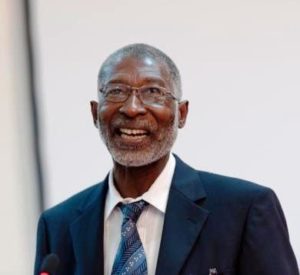Researchers to benefit from Internet Engineers Taskforce – Prof Quaynor

Professor Nii Narku Quaynor, the Chairman Internet Society (ISOC) Ghana Chapter, has said that Computer Science and Information Technology researchers in academia stand to benefit a lot from the activities of the Internet Engineers Taskforce (IETF).
He said this is because academics create and share a wealth of knowledge through research.
“Industry might be more reluctant to share their work, but academia has the culture of sharing,” he said.
A statement issued by ISOC Ghana Chapter and copied to the Ghana News Agency said Prof Quaynor, who urged university researchers take an interest in perusing IETF documents, was speaking at a forum organized for researchers of Ghanaian universities at the Ghana Korea Information Access Centre at the University of Ghana Legon in Accra.
In all, over 40 participants, including students attended the forum.
The forum, which was held on the side of the InterCommunity 2016 event to introduce universities researchers to the activities of the IETF so that they can participate in its activities, which include research activities, thus contributing to global knowledge.
To give an overview of the IETF was Mr Alain Patrick Aiana, a Senior Network Engineer at West and Central Africa Education Network (WACREN).
He said that primarily, the aim of the IETF was to engage countries, particularly those in the developing countries like Africa in discussions and activities to make the internet work better.
Mr Aiana said Africa’s participation at the IETF leaves a lot to be desired.
“Africans struggle to find their way in the IETF community, but African voices have to be heard otherwise all decisions on the Internet will be done by the North,” he said.
He expressed the hope that through such fora, more Africans researchers would understand the workings of IETF and would actively participate in its activities.
He said that participation in IETF was at an individual level, whose interactions are done via email discussions working groups, and three face-to- face meetings in a year for further discussions to building consensus.
Explaining the organizational structure of the IETF, Mr Aina, said the working groups were led by area directors who, were the only paid staff of the IETF and the organization is volunteer-based.
Speaking on how protocols and documents are approved, Mr Aina said that the submission of an idea for a new protocol was done through writing a draft to one’s working group.
The draft would be you discussed till a consensus is reached, then the document would be sent to the Steering Group or the Area Directors to review document.
The document is approved within four weeks or sent back to the working group for comments.
The IETF has different types of documents, which include informational, best story practices and standards, experimental documents.
Internet Society’s Intercommunity event which was pioneered in 2015 brings the Internet community together to among others, highlight regional accomplishments; remember and highlight ISOC’s mission; celebrate and reflect on the community’s work and provide ISOC members with a sense of belonging through opportunities to act.
Source: GNA
